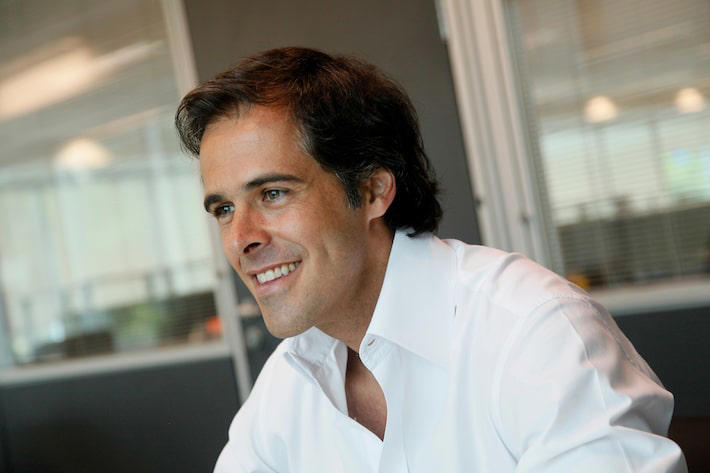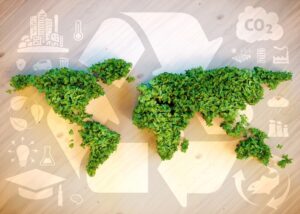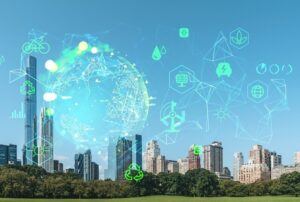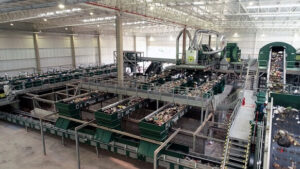
Source: Estadão by Sonia Racy – 10/23/2024
For Milton Pilão, ‘recycling waste is taking care of the planet‘ and waste treatment ‘is in vogue.’
Just over a decade ago, entrepreneur Milton Pilão had a revelation while attending lectures abroad by entrepreneurs such as Warren Buffett, Bill Gates, and Steve Jobs. He learned that dealing with waste is a promising market, resilient to crises. After all, the volume of open dumps in Brazil only continues to grow.
Upon returning to Brazil, he realized that while there were well-established companies in sectors such as water and sewage, few were willing to recycle waste. With that in mind, he decided to invest in this field. “I believe it was a very wise decision,” says the CEO of Orizon, a company founded in 2013 that now operates in 12 states, has 17 ecoparks, and recycles the waste of at least 40 million Brazilians. Along the way, he acquired a bankrupt company with debts of R$ 700 million, went public, and is now investing R$ 1 billion in expanding new units.
According to Pilão, the energy transition should finally put an end to open dumps, which were supposed to be eliminated under a law enacted in 2014. “I estimate that by 2030, Brazil will no longer have open dumps. This is the main environmental issue in urban areas today,” he says. Below are excerpts from his interview with Cenários.
What is the importance of recycling waste today?
Recycling waste is taking care of our planet. And perhaps that’s why this topic has become more fashionable. People ask me, ‘Is waste in fashion?’ It’s not waste that’s in fashion, but treating waste and taking care of the planet. The recent extreme weather events—whether excessive heat, droughts, or rains—affect everyone’s lives.

Orizon was founded in 2013. What motivated you and made you realize that waste recycling could be a viable economic path?
Back in 2010, when I decided to enter this field, two things motivated me. First, I attended lectures abroad and listened to some of the great business minds, like Bill Gates, (Warren) Buffett, and (George) Soros. They all emphasized that water, waste, and energy treatment would become increasingly crucial and sustainable industries. I thought, “This is an opportunity.” Returning to Brazil, I saw that the energy sector was already well-established, as were water and sewage. But waste management was barely discussed. Observing practices abroad, I concluded there was a huge opportunity here and decided to bet on it. I believe it was a very wise bet.
What did you consider when deciding this market was worth pursuing?
Starting from scratch in this market was very difficult. Then the opportunity to purchase a company called Rastec came along. I saw it as a chance to enter the market without paying a steep price of admission.
You acquired a bankrupt company with R$ 700 million in debt. Today, 11 years later, Orizon is thriving and investing R$ 1 billion. How did this happen?
In February 2021, we went public. We demonstrated our capabilities and used the financial tools to invest and grow the company. Today, Orizon is investing R$ 1 billion in new plants and plans to maintain this pace of investment in biogas, energy, and other areas within our ecoparks in the coming years.
What’s the composition of the waste being recycled today?
Half of the waste is food, and another 30% is recyclable. This food waste generates gas and energy. The recyclable portion is processed by mechanized facilities that automatically separate materials like plastic and paper, which can re-enter the industrial market. Another facility processes sewage sludge, turning it into green fertilizer that we sell as agro-fertilizer.
Will Brazil ever be free of open dumps?
I’m certain that open dumps will come to an end. The law already mandates their closure. Currently, 35% of waste generated by the population still ends up in open dumps. This is unheard of in other countries and constitutes an environmental crime. Open dumps have enormous environmental and social impacts. Untreated waste contaminates groundwater, which feeds rivers and reservoirs. Studies show that 70% of diseases are linked to water contamination. But I estimate that by 2030, Brazil will no longer have open dumps. This is the main environmental challenge in urban areas today.
A successful banker once said, ‘For every project I evaluate, I don’t look for what could go right but what could go wrong.’ In your journey, what could go wrong?
The biggest challenge and risk for the company is what I call the ‘arm.’ By this, I mean people. We bring in new processes and often import technologies already used abroad, but the local workforce isn’t always prepared. Imagine a company that had five ecoparks three years ago and now has 17. Our biggest challenge is training.
Is this a recession-proof industry?
There is no crisis. During the pandemic, we experienced an increase in waste generation. Why? People stayed at home, started ordering everything online, and the number of packaging materials increased drastically. So, I say that we have a business that is perennial, with little instability because waste is always there.



